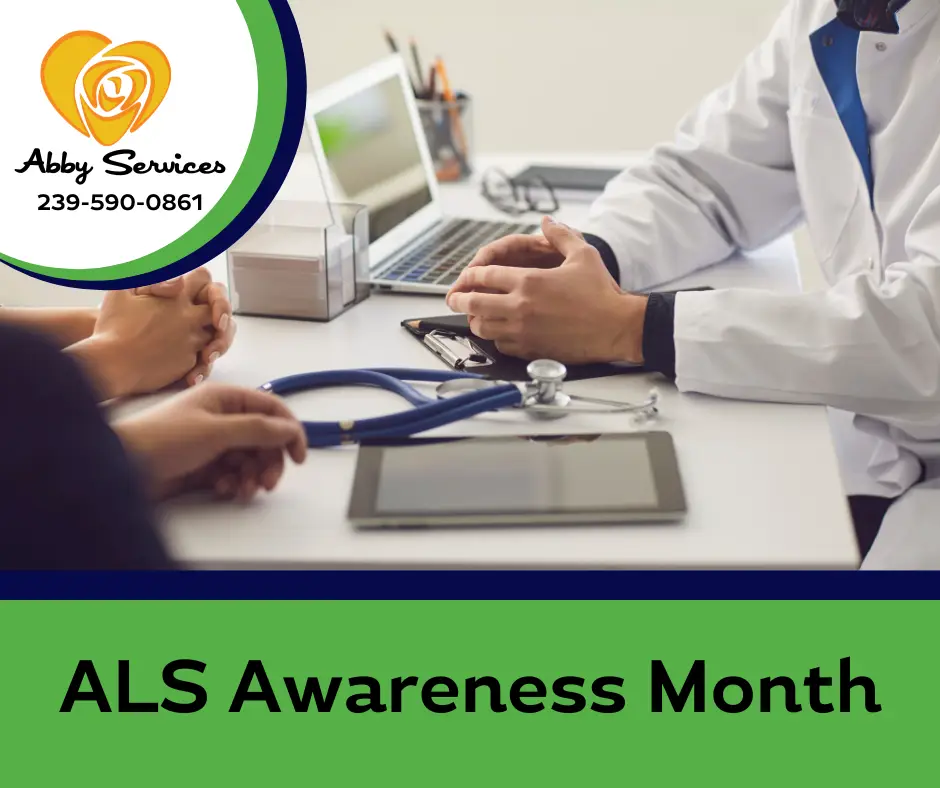ALS In-Home Care
ALS and In-Home Care unfortunately go hand in hand. ALS, or amyotrophic lateral sclerosis, is a progressive neurological disease that affects nerve cells in the brain and spinal cord. As the disease progresses, people with ALS may experience difficulty speaking, swallowing, and breathing, as well as a loss of mobility and muscle control. This often requires an individual to receive ALS in-home care.
What is ALS?
The Mayo Clinic defines ALS as:
Amyotrophic lateral sclerosis (a-my-o-TROE-fik LAT-ur-ul skluh-ROE-sis), known as ALS, is a nervous system disease that affects nerve cells in the brain and spinal cord. ALS causes loss of muscle control. The disease is progressive which means that it gets worse over time.
ALS is often called Lou Gehrig’s disease after the baseball player who was diagnosed with it. The exact cause of the disease is still not known. A small number of cases are inherited.
Can ALS patients live at home?
ALS In-home care can be an important component of the care plan for individuals with ALS, as it can provide much-needed support and assistance with activities of daily living, such as bathing, dressing, and eating. ALS In-home care can also provide emotional support and companionship, which can be especially important for people with ALS who may experience social isolation and depression.
In addition, ALS in-home care can help minimize the risk of complications and hospitalizations by ensuring that individuals with ALS receive appropriate medical care and monitoring. Overall, in-home care can play a critical role in helping people with ALS to maintain their independence and quality of life for as long as possible.
How to care for an ALS patient at home.
Caring for an ALS (Amyotrophic Lateral Sclerosis) patient at home requires patience, empathy, and careful planning. First and foremost, it is crucial to establish a comfortable and safe environment for the patient. This includes modifying the home such as installing grab bars, ramps, and wheelchair access. This enables a caregiver to safely and effectively care for the patient as their disease progresses.
It is also important to ensure that the patient can access all necessary medical equipment and medications. Caregivers should also be trained on how to properly assist with activities of daily living (ADLs), such as bathing, dressing, and feeding.
Communication is vital to understanding the patient’s needs and preferences. ALS patients often experience difficulty communicating as the disease progresses, so caregivers should be knowledgeable about communication devices and techniques that work for the patient.
It is also important to prioritize the patient’s emotional well-being by providing emotional support, engaging in activities the patient enjoys, and connecting them with support groups and resources. Overall, caring for an ALS patient at home requires a holistic approach that addresses the patient’s physical, emotional, and medical needs.
Local support for ALS patients and their families.
Fortunately, the Fort Myers and Cape Coral area has local resources available that are specific to ALS patients. The Lee Health ALS Clinic is a key resource.
When visiting the Lee Health ALS Clinic, a team of medical professionals individually assesses the ALS patients’ symptoms and provides recommendations for supportive therapies and symptom management techniques.
Of course, other services to support ALS patients are available such as the private caregiver services available through Abby Services.
How can Abby Services help with ALS in-home care?
An AlS in-home caregiver can help with many activities to help you remain safe in the home. Abby Services helps residents in Fort Myers, Cape Coral, and surrounding areas find excellent in-home caregivers.
We have clients call every day wondering how a private in-home caregiver can help them. As a state-licensed nurse registry overseen by the Agency For Health Care Administration, and The Department of Health, there is a list of things your in-home caregiver can and can’t help with.
Often this is simply related to a caregiver’s training and licensure. Wound care for example requires a skilled nurse (an RN or LPN) and your private caregiver is not allowed to assist with that.
Overall it is truly a client’s choice what they would like help with. The goal is to help clients remain safe in their homes with the support of a private ALS in-home caregiver.
Together with our team, we can help guide a family to develop a client-driven plan of care that meets the needs of their loved one.
Your private ALS in-home caregiver referred by Abby Services can help many things including:
- Bathing
- Dressing
- Light housekeeping
- Meal preparation
- Personal hygiene
- Laundry and linens
- Medication Reminders
- Accompany to appointments
- Assist with shopping and errands
- Ambulation
- Transfers
- Toileting and continence care
- Pet Care
